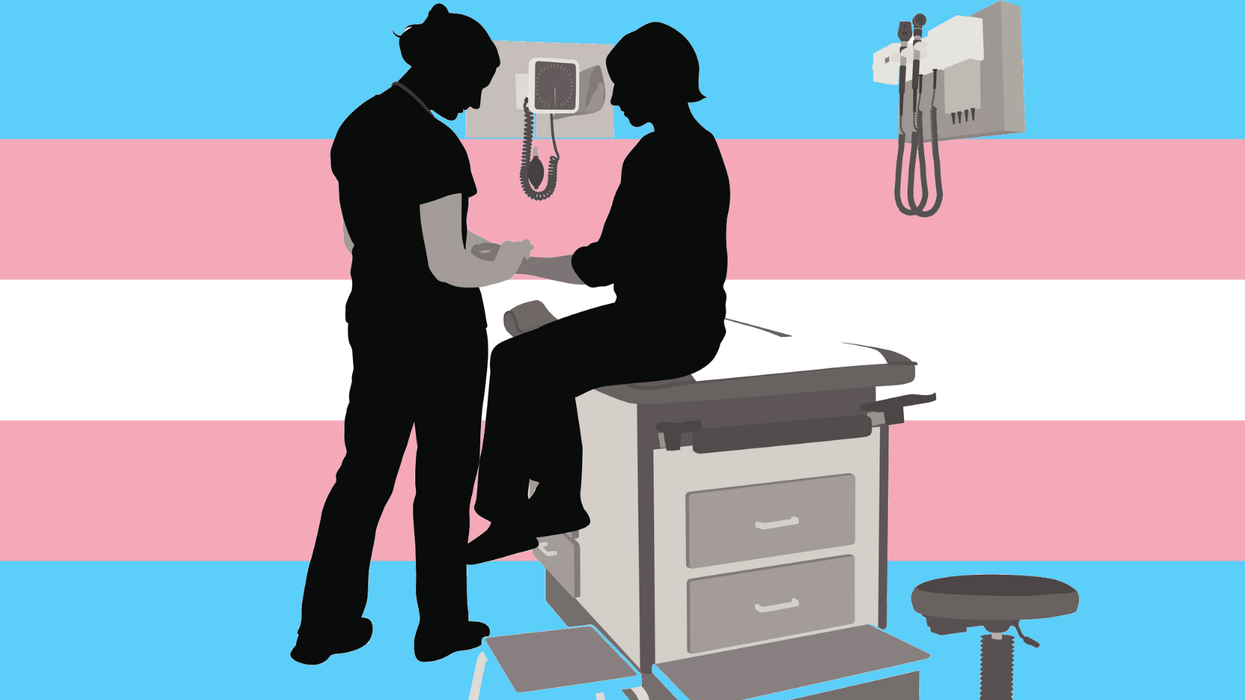Louis Staples
Jan 28, 2020

iStock
A landmark study has revealed that puberty blocking medication can be “life-saving” for transgender teenagers.
The study, published last week in medical journal Pediatrics, is the first of its kind. It examined a link between suicide rates and puberty blockers and (to the surprise of no one who has actually spoken to a trans person) it found that trans teenagers are less likely to attempt suicide if they have access to the medication.
The report suggests that access to puberty blockers for trans teens who are asking for them reduces their likelihood of having suicidal thoughts in both the short and long term, by up to 15 per cent.
What are puberty blockers?
Puberty blockers are a type of medication that can be given to children who are questioning or exploring their gender identity. They slow the process of puberty and the emergence of features like facial hair, deep voices, Adam's apples, breast development and menstruation.
Puberty blockers are important because the effects of puberty can be harder to reverse once it has started, which can make it more difficult for trans people to physically transition in future.
It's not just trans teens who taken them, though. They are also sometimes given to some young people who aren’t questioning their gender identity, but who started puberty earlier than average.
There has been a lot of misinformation spread about puberty blockers.
Puberty blockers allow a young person who might be questioning their gender identity to have a little more time before puberty changes their body in a way that they might not want it to. Puberty blockers to not permanently put off puberty and aren't taken long term.
Trans author Juno Dawson told indy100 that she welcomes the report.
It’s encouraging to read this report. I’ve seen first hand that so-called “blockers” can hugely help younger trans patients and their mental health. An awful lot of misinformation has been shared in the press, but this medication is nothing new and has positive outcomes as we can see from this report.
Opponents of puberty blockers often argue that pre-puberty is too early for children to be making decisions about gender identity. But in reality the drugs are more like "puberty pausers" than blockers. They buy some time by postponing puberty, rather than blocking it altogether.
Lui Asquith, legal and policy manager at trans youth charity Mermaids, tells us that they have seen first hand how unwanted puberty increases levels of anxiety and depression. Without adequate support, young trans people are extremely vulnerable.
In the UK, blockers are only given out to pubescent people who require them to improve their health, wellbeing and in some cases, to save their life. The use of blockers is supported by the NHS, as well as the World Professional Association of Transgender Health, because they help vulnerable young people to avoid considerable distress and discomfort.
Crucially, Asquith dispels the myth that every child who takes puberty blockers ends up medically transitioning, saying:
Hormone blockers give these young people time to reflect, think and work out who they are. Some will come off blockers and go on to experience life as they would otherwise have done and others continue on to cross sex hormones treatment. Both journeys are valid.
Josh Bradlow, head of policy at LGBTQ+ charity Stonewall, told indy100 that the study shows the crucial and positive role puberty blockers can play in supporting a trans young person’s mental health.
We know there’s been lots of misinformation about trans young people in recent years, and this study is an important contribution to addressing that. It’s vital we highlight the facts about the reality of life for trans young people and the support available to them, so that we can ensure that all trans young people can grow up safe, supported and free to be themselves.
So why has this issue become so contentious?
Gender and identities reporter Vic Parsons has monitored the coverage of puberty blockers extensively for LGBTQ+ news site PinkNews. Parsons exclusively reported that UK media coverage of puberty blockers had focused on a potential legal case that may challenge whether the NHS should continue prescribing them to under-16s, or whether each young trans person who requests them should be required to go before a judge before they can be prescribed.
But the case in question doesn’t actually exist – yet.
This has been reported twice now in the mainstream media as a legal case being "heard" in the High Court or having "reached" the High Court, when actually, all that's happened is an application has been filed for a judicial review. The court still has to decide whether the case is worth hearing, and if it does decide to, it'll likely be months before it makes it in front of a judge.
This “case” has stirred up a lot of anti-trans sentiment and “debate” about whether it’s “morally right” to give trans children the healthcare they need. As a trans person, Parsons tells me that the coverage feels “completely overblown”.
We know puberty blockers are a safe and reversible treatment that essentially pause puberty so that young trans folk don't have to make bigger decisions about transition related stuff until they're older and ready. They've been used for decades.
But if you only read the mainstream media you probably don't know that, because it doesn't fit their anti-trans narrative.
Parsons thinks that, if the landmark study had revealed that puberty blockers were a risk to trans children, the coverage would have been “very different”. To counter this, they believe that more diversity in journalism is essential.
As a non-binary person, one of the most infuriating things is how almost all of the coverage of trans issues is written by cis, straight journalists. We need more trans journalists in newsrooms, and in senior positions.
In a time of misinformation where feelings often trump facts, the science couldn't be clearer: puberty blockers can be a valuable lifeline for vulnerable people.
More: Twitter thread perfectly puts into perspective the toxic rhetoric around trans athletes
Top 100
The Conversation (0)













